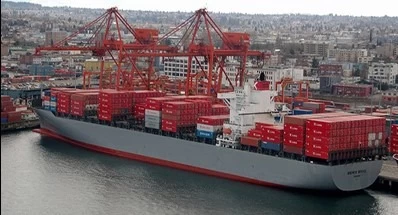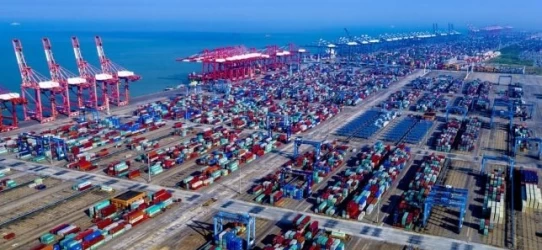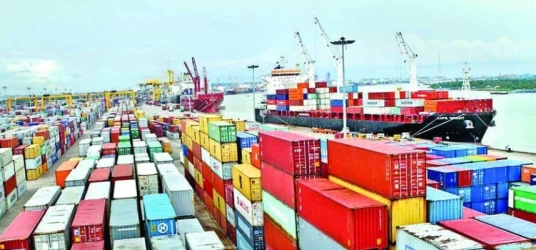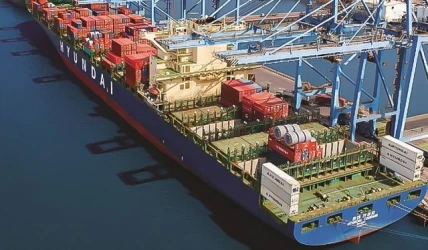Sea freight in Kandla port
Kandla Port, now officially known as Deendayal Port, is one of India's busiest and most significant ports located on the western coast of the country, near the Gulf of Kutch in the state of Gujarat. As a deep-water port, Kandla plays a crucial role in facilitating maritime trade, supporting the economy, and providing vital links to international markets. This article explores the importance of Kandla Port in maritime transportation, its infrastructure, economic impact, environmental challenges, and future opportunities.
Geographic Location and Significance
Kandla Port is strategically situated close to several industrial and commercial centers in India. It provides direct access to the Arabian Sea, making it a vital gateway for the import and export of goods. The port is particularly significant for its proximity to oil refineries and petrochemical industries in Gujarat, allowing for efficient transportation of raw materials and finished products.
Infrastructure of Kandla Port
Kandla Port boasts advanced infrastructure that enables it to handle a large volume of cargo efficiently. Some key features of its infrastructure include:
- Specialized Berths: The port has multiple berths designed for various types of cargo, including liquid bulk, dry bulk, and containerized goods. This specialization allows for quick turnaround times and efficient loading and unloading processes.
- Warehousing and Storage Facilities: Kandla offers extensive warehousing and storage facilities for both imported and exported goods, accommodating a wide range of products, including food grains, minerals, and machinery.
- Transport Connectivity: The port is well-connected to major highways and rail networks, facilitating the smooth movement of goods to and from inland destinations. This connectivity enhances its role as a critical logistics hub.
Economic Impact of Kandla Port
Kandla Port significantly contributes to the Indian economy. It handles a substantial share of the country's cargo traffic, particularly in the petrochemical and agricultural sectors. Key economic impacts include:
- Trade Facilitation: The port serves as a vital link for international trade, facilitating the import of crude oil, fertilizers, and other essential goods while also enabling the export of agricultural products and manufactured goods.
- Employment Generation: The activities at Kandla Port create numerous job opportunities, both directly and indirectly, in various sectors such as logistics, shipping, warehousing, and transportation.
- Regional Development: The port has spurred the development of surrounding areas, leading to the establishment of industries, commercial activities, and improved infrastructure in the region.
Environmental Challenges
While Kandla Port plays a crucial role in supporting trade and the economy, it also faces several environmental challenges. Key issues include:
- Pollution: The increased maritime traffic contributes to air and water pollution, affecting local ecosystems and communities.
- Habitat Destruction: The construction and expansion of port facilities can lead to habitat loss for local wildlife, particularly in coastal areas.
- Regulatory Compliance: Ensuring compliance with environmental regulations is essential for mitigating negative impacts and promoting sustainable practices within the port.
Opportunities for Growth
Despite the challenges, Kandla Port has several opportunities for growth and development:
- Investment in Infrastructure: Ongoing investments in upgrading port facilities and enhancing technological capabilities can improve operational efficiency and attract more shipping lines.
- Green Initiatives: Implementing environmentally friendly practices and technologies can reduce the ecological footprint of port operations and promote sustainability.
- Increased Trade Partnerships: Expanding trade relationships with emerging markets and strengthening existing ones can enhance Kandla's position as a key player in international maritime trade.
Conclusion
Kandla Port is a vital component of India's maritime transportation system, significantly contributing to the country's economic growth and international trade. With its strategic location, advanced infrastructure, and robust economic impact, Kandla Port plays a pivotal role in facilitating the movement of goods to and from India. While it faces environmental challenges, opportunities for growth and development remain, making it an essential hub for maritime transportation in the region.
If you have any specific questions or need further assistance, feel free to ask!











